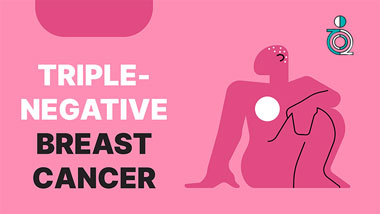
2025-11-02
Innovative Approaches in Triple-Negative Breast Cancer (TNBC) Treatment: Mobilizing the Body’s Defense Forces
Innovative Approaches in Triple-Negative Breast Cancer (TNBC) Treatment: Mobilizing the Body’s Defense Forces
Breast cancer is the most common cancer among women worldwide. The International Agency for Research on Cancer has predicted that the incidence rate of breast cancer will increase by more than 40% and the mortality rate by more than 50% in the coming years. Triple-negative breast cancer (TNBC) is one of the aggressive subtypes of this disease. Due to the lack of effective treatments for this type of cancer, extensive efforts have been made in recent years to improve therapeutic opportunities for patients with TNBC.
The aim of this study was to evaluate the efficacy of existing treatments and review novel and promising therapeutic methods, especially immunotherapy-based treatments, with a particular focus on “Adaptive Cell Therapy” (ACT) as one of the subgroups of this approach. To conduct this study, a comprehensive review of existing scientific articles was performed using medical databases including PubMed, Scopus, and Web of Science. Relevant articles were identified through searches using keywords such as “breast cancer,” “TNBC,” “Adaptive Cell Therapy (ACT),” and “immunotherapy,” along with Boolean operators (AND and OR).
Treatment of TNBC is particularly challenging due to the absence of estrogen receptors (ERs), progesterone receptors (PRs), and human epidermal growth factor receptor 2 (HER2). Tumor-infiltrating lymphocytes (TILs), as key elements in the tumor microenvironment (TME), play a significant role in identifying and destroying tumor cells, which has led to the rapid development of immunotherapy-based therapeutic strategies. Among these methods, ACT has emerged as a promising approach that has shown encouraging results in recent years. The remarkable success of CAR-T cell therapy in hematologic cancers and the promising results of T-cell receptor-based therapies (TCR-T) in solid tumors have prompted extensive research to identify suitable targets and new therapeutic combinations for applying ACT in solid tumors, including TNBC.
ACT-based therapeutic strategies such as TIL and CAR-T have demonstrated potential efficacy in TNBC, and the results of some clinical trials have reported improvements in survival rates and tumor size reduction in certain patients. However, challenges such as optimal antigen selection and management of side effects still hinder the widespread application of these therapies for all patients. The biological and pathological characteristics of TNBC provide valuable insights into the behavior and therapeutic vulnerabilities of this cancer type, and recent extensive research in cancer immunotherapy has brought new hopes for TNBC treatment.
Overall, ACT-based therapies such as TIL and CAR-T represent promising therapeutic pathways to improve clinical outcomes in patients with triple-negative breast cancer.
Compiled by: Majid Taherian
/End of message
Charity Foundation of Special Disease
@cffsd